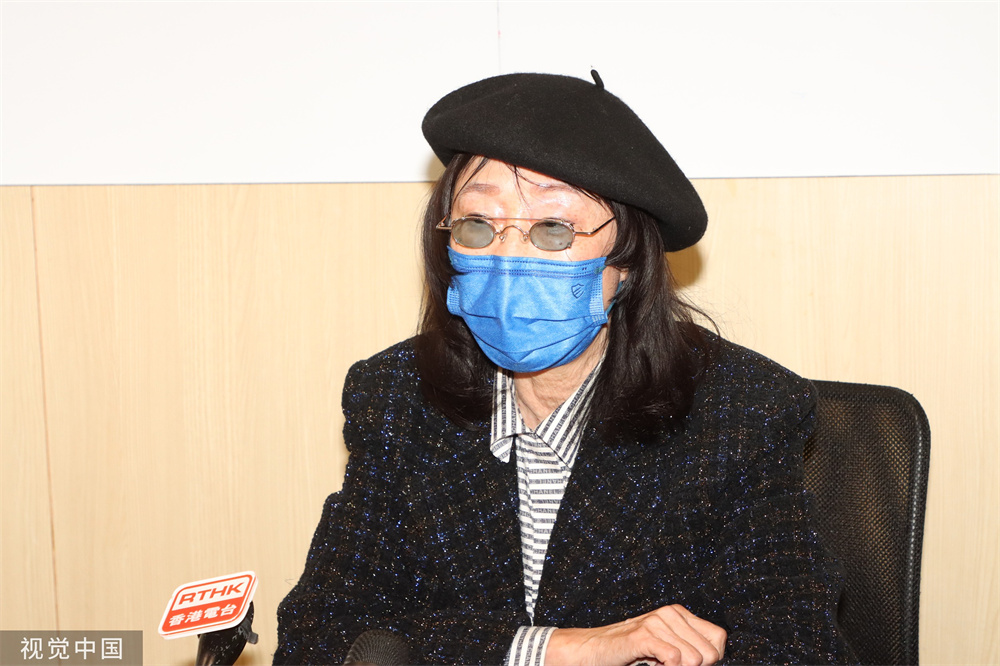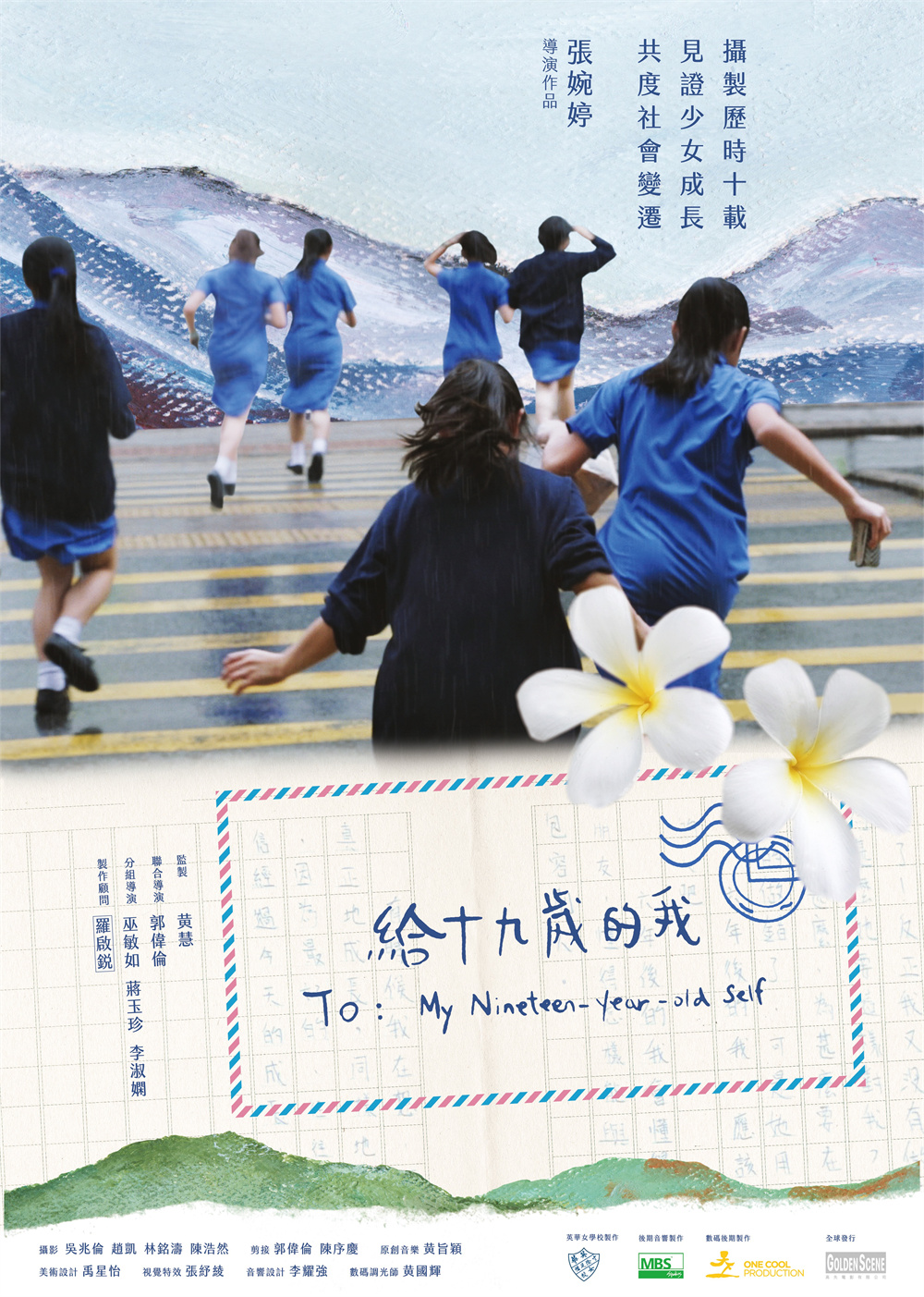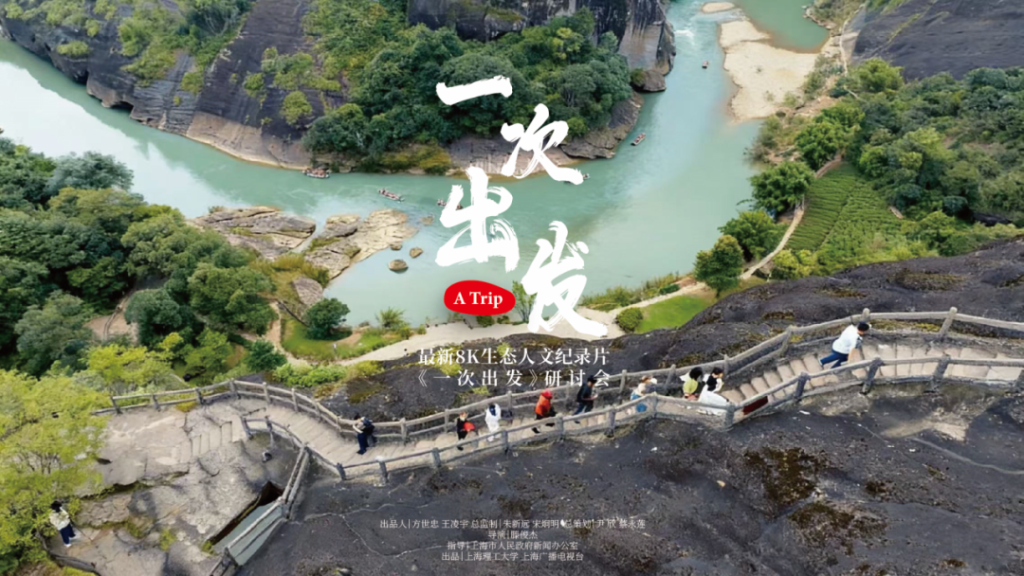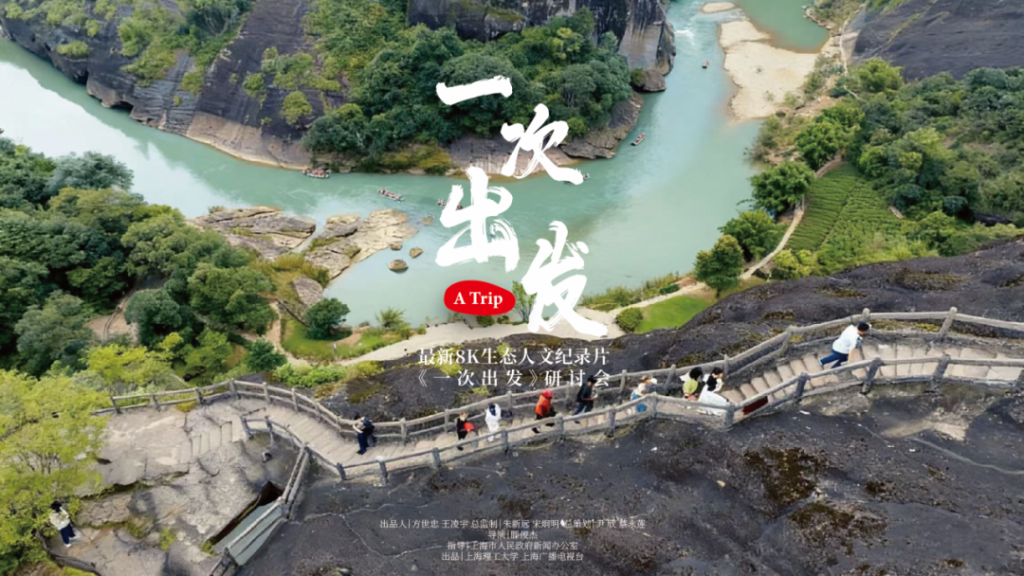
The documentary "To My Nineteen Year Old Self" (To My Nineteen Year Old Self), directed by Maggie Cheung, has been suspended since February 6 after it was released for four days. The reason why the release of the film was stopped was that it was complained by two female students who participated in the filming, saying that the film was still released despite their objections, and it also involved issues such as candid filming and ignoring their refusal to film. Ah Ling, one of the protagonists of the film, expressed through the media that he did not agree with the public screening of the documentary in any form from the beginning to the end.
On February 5th, Zhang Wanting responded that due to the recent wind and rain caused by the film, it was decided to suspend the public screening from February 6th, and then clarify the incident. She admitted that she was duty-bound and apologized to the film team, staff, students, etc.

On February 5, 2023, Zhang Wanting, the director of the documentary "For Me at Nineteen", appeared to respond to the controversy, saying that Ah Ling had never objected to the release, and her family had signed a consent form before filming. Visual China Map
The documentary "For Me at Nineteen" was directed by Maggie Cheung and produced by Huang Hui. It took ten years from the preparation and shooting to the completion of the film. It tells the growth stories of many students born in the millenniums of Ying Wa Girls' School in Hong Kong. Zhang Wanting's documentary filmed for her alma mater, Yinghua Girls' School, has earned nearly 10 million Hong Kong dollars in box office since it was officially released last Thursday.
As soon as the news of the suspension of the release came out, there were a lot of comments. Because the current Douban score of the film is as high as 9.1 points, some documentary lovers lamented that it was a pity not to see it! Some people also think that why is a documentary that does not respect the people being filmed worth looking forward to and regretting? ! This has put the ethical issues of documentaries on the table again for heated discussions.
Previously, the documentary "For Me at Nineteen" was named the best film at the 29th Hong Kong Film Critics Society Awards.
The reason for the award given by the judges is: "It took ten years to track six Yinghua girls, pick up bits and pieces in the passage of time and personnel changes, and collage them into a picture of the social landscape of Hong Kong girls in the 21st century. It is a Hong Kong documentary. A special existence in the film. The film covers a wide range of subjects, and the finishing process is arduous, especially the editing. From the Wowo family to the small households, from fragmentation to dialects and regional characteristics, you can find delicate and plain records in the works The six interviewed girls are like jade in the rough, with undisguised straightforwardness and charm, exuding a little inspiration in front of the camera."

"To Me at Nineteen" poster
Just looking at the reasons for winning the award, you can also know how much director Zhang Wanting paid for it.
"The finishing process is arduous, and the editing should be especially credited." It means that the amount of material accumulated in ten years is huge, and the shooting of a documentary can last for ten years. The bond of trust. As for what caused the break of the bond, it is not easy for outsiders to speculate. As far as the solution is concerned, the matter has come to this point, and there is nothing more than one way. use. Of course, this approach is bound to be equivalent to burning hard work.
For a long time in the past, documentary creators were indeed more willing to devote energy to creation, while ignoring the most crucial point, what you are shooting is a living person, a real person with social identity. Even if you photograph a person growing up, his changes are immeasurable.
Now, more serious photographers have chosen to sign a pre-shooting agreement, involving the use of portraits, overseas distribution, and even the final profit sharing.
According to the report article of "directube", after the first private screening of the film in December 2021, Ah Ling has repeatedly stated to director Maggie Cheung and Yinghua Girls' School that she does not agree to any form of public screening. For on-campus screenings or fundraising purposes only. She was very afraid of the public screening, "After the diagnosis, the psychiatrist also said that in my state, the film is not suitable for public screening." Ah Ling even asked Zhang Wanting to delete the clip, but the other party refused on the grounds that she had passed the inspection. , and then the movie has been stuck in a stalemate. Ah Ling reiterated again and again: "I have never given consent to the public screening."
Judging from the current public reports, Director Maggie Cheung did reach an agreement with the school on filming and distribution, but neglected to reach an agreement with the characters. It can also be said that she may simply think that since the school agrees, the subject must be I also agreed.
So to rephrase the question:
1. Before the filming of this documentary, the female students were still minors. Did the school or the film crew obtain the signature of their guardians to use their portrait rights?
2. During the initial filming, did the female students and their guardians know that the film would be released in theaters in the future?
3. After the on-campus screening, whether it was director Zhang Wanting or the person in charge of the school, did they understand the psychological changes of the subjects and take timely measures?
According to the situation described by Ah Ling, the school only remembered and distributed the agreement to the students one month after the premiere, while Maggie Cheung herself refused to delete the scene on the grounds of passing the inspection. At present, apart from apologizing and stopping the screening of Ah Ling's appeal, the school and Zhang Wanting have not responded to the details, so whether the responsibility lies with the school or Zhang Wanting herself is still unknown.
In fact, the ins and outs of the incident are no longer important. When the documentary director sets up a camera and intervenes in the lives of others, a subtle relationship is created between the two, that is, the relationship between the photographer and the person being photographed. This kind of structural existence is the original sin of documentaries.
Ethical issues of documentaries are encountered by almost every documentary director; when filming a bear falling off a cliff, someone will ask, you have time to shoot here, why not help it? When filming the marginalized and vulnerable groups at the bottom, there will be people questioning, and bringing the most unbearable and ugly side to the world for foreigners to see is a novelty mentality!
In the high-scoring medical documentary "Human World", there is an episode "Love" that made the audience cry the most. 26-year-old Zhang Lijun and her husband were married for less than a year and were five months pregnant when she was diagnosed with terminal cancer. At this time, the decision that the patient needs to make is whether to give birth or not to give birth? In the end, the patient chose to have a caesarean section at 7 months of pregnancy. The premature baby weighed only 2 catties, but showed strong vitality. As the treatment progressed, Zhang Lijun's hair fell out and she lost her sight in one eye. And during the reunion dinner, the family's mixed laughter and tears were impressive. For this reason, countless people were moved by the spiritual willpower of the parties, the great maternal love, and the emotions of ordinary people. But as the program aired and the topic fermented, more voices of accusation emerged, saying, "Is Zhang Lijun's actions worthy of praise?"
A year after Zhang Lijun passed away, her husband remarried, and some netizens scolded Zhang Lijun's husband angrily, calling him a scumbag, and shouldn't have forgotten his ex-wife who gave her life for him so quickly.
He was originally an ordinary person in the vast crowd, but he was criticized by the outside world for being featured in a documentary with a high reputation. For the release and dissemination of the documentary, the person being filmed has to endure more judgments from the outside world, and the psychological pressure can be imagined.
Therefore, the most dangerous situation encountered by most documentary filmmakers is that some subjects with mental illness will have unpredictable psychological changes. The lens is like a scalpel, opening up the wound a little bit for outsiders to see, which may cause the subject to suffer a deeper secondary injury.
So do you want to see it as a film for the person being photographed? This is also an unsolvable problem that has always plagued documentary creators.
During the 2010 "Shanghai Film Festival and Forum" forum, Li Xiaofeng, the curator of the "Shanghai Film Festival and Forum", had a conversation with director Xu Tong, and one of the conversations involved documentary ethics.
When Li Xiaofeng asked Xu Tong if he wanted to show the subject to see the film, Xu Tong replied: "I have also heard a similar saying in foreign countries, that is, the film must be seen by the subject, and there is a law. This thing sounds reasonable at first glance, but it is actually quite hypocritical. It seems that by doing this, you can have a clear conscience and do whatever you want. That can only bring more harm to the person being photographed. Therefore, what I said To be sure, it is better to protect the subjects as much as possible. For example, to designate a limited screening area and crowd. For example, "Wheat Harvest" is currently not released and screened in mainland China. "Fortune Telling" signed an agreement with a distribution company in the United States not long ago. The direction is mainly university collections, mostly for research."
"Starting from protecting the subject as much as possible", this is indeed the bottom line of the industry that documentary directors must abide by.
Documentary photographers must first clarify a few points:
1. Don’t naturally think that friends and relatives can “do it”. Although they open their hearts to you without reservation and have no grievances. At the beginning, they agree with your filming, but there is no guarantee that they will be photographed in the face of public opinion or interests in the future. There will be no greater waves in the heart of the reader.
2. The mentality of facing the underprivileged will make or break your creative career. If you just blindly ask for other people's lives, without empathy and empathy, your creative core will gradually lose its direction. The recorder must know when to shut up and turn off the camera.
3. It is very necessary to sign a contract with the subject before shooting. To be recognized by the photographer is not only to respect each other, but also to leave a guarantee for one's hard work. It is indeed a pity that Zhang Wanting spent ten years shooting such a painstaking documentary, so that the film cannot be seen again.
Most of the works directed by Kazuo Hara in Japan tell the stories of marginalized people in society, those whose destiny has been changed due to social change, the rise of feminism, and the emergence of counterculture. When asked how do you view "truth"? "I don't see documentaries as a marketable product," he replied.
If a documentary work changes from a private image to an image for public sale, then from a legal point of view, the consent of the subject is indeed required. Although each case is always different, the creators themselves really should not have any chances .
In the article "All dry goods - 13 precautions for documentary filming", the common sense risk warning for filming documentaries is given.
“You need to be aware of privacy rights, trademark usage rights and copyright protection laws. If you plan to show it publicly, then make sure you can find legal counsel or obtain legal advice to confirm the relevant forms, permits and releases required. Documentation is accurate. Many films will also prepare an insurance contract that will indemnify the producer in the event of 'Errors and Omissions'. On budget forms, this contract is often abbreviated as 'E&O Insurance'. Please make sure to implement this document before filming begins.”
In particular this one:
"Everyone who appears on screen must sign a license agreement with you allowing you to use their likeness or name in the film. If you ignore this requirement, you are doing so at great risk. There is no license for every subject in the film agreement, especially those characters who are portrayed in a more explicit way and criticized, your film has fatal flaws in sales and commercial release. Many filmmakers use charismatic staff to lobby Sign agreements with people who are being lured into being filmed. Even people who seem to resist the cameras, get arrested, and are being sent to prison on television reality police crime shows have signed their own licensing agreements (such as the TV show " They may do so on the basis of certain conditions: the film crew promised to help them notify their families, contribute to their bail bond or help them seek legal advice-through these inducing conditions to get those precious signatures. What about the rest of those who don’t want to sign? Often their faces are mosaiced and their voices processed or beeped to make them unrecognizable.”
Of course, film critic Wang Xiaolu also mentioned a point of view in "The Contractual Spirit of Chinese Independent Documentaries". The contractual spirit of documentaries includes the contract between the author and the subject. This contract is not necessarily written on paper. , The shooting process is often mixed with extremely complicated social factors. The spirit of contract in the documentary should not be defined as a so-called contract in black and white. It should be a kind of common consciousness reached throughout the shooting and production process.
Under Zhang Wanting's lens, she may firmly believe that what is being photographed is the most beautiful and true side of the female student's life; but the person concerned does not necessarily think so, some youthful memories are cruel and do not want to recall them again. Documentaries try to bring us closer to the truth, but we never dare to forget another mission of documentaries: to respect every living life.


